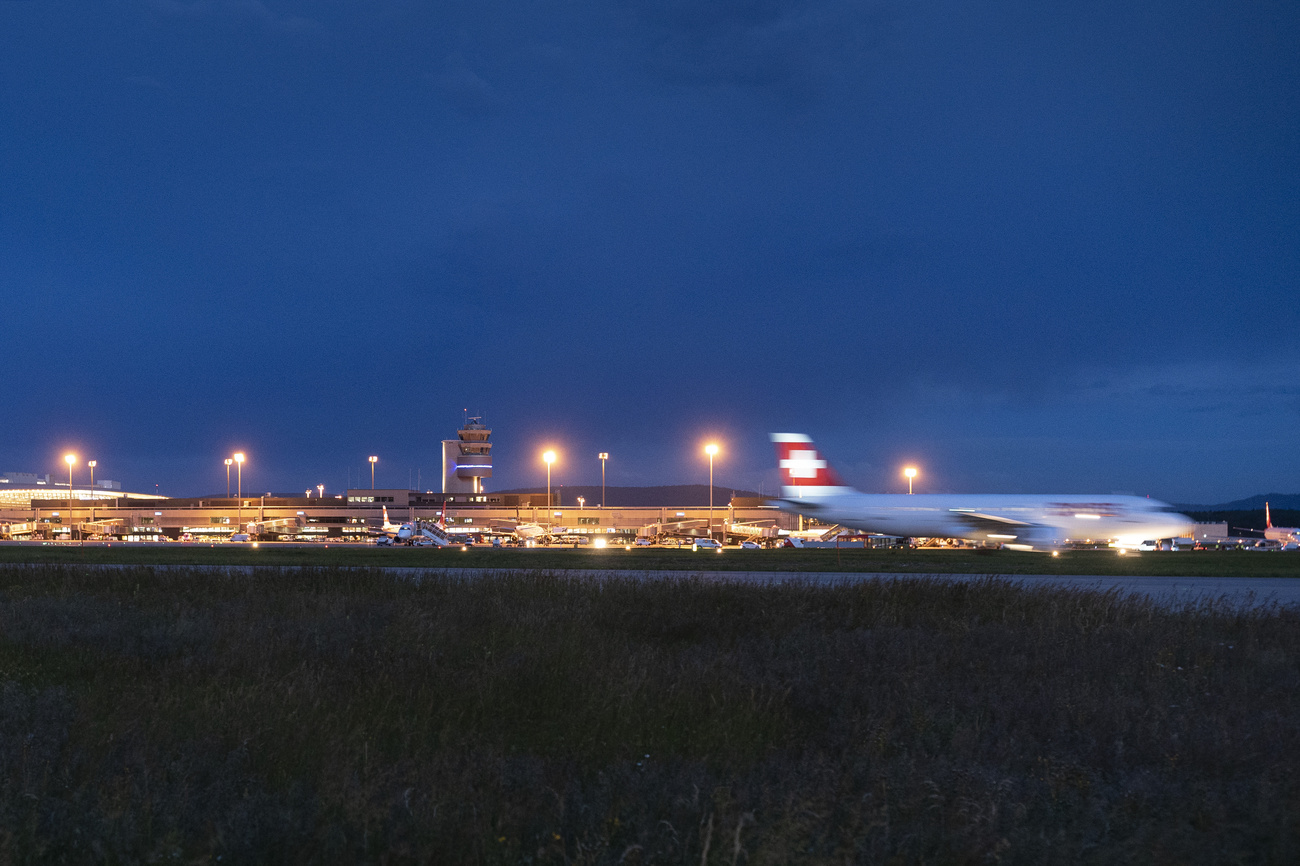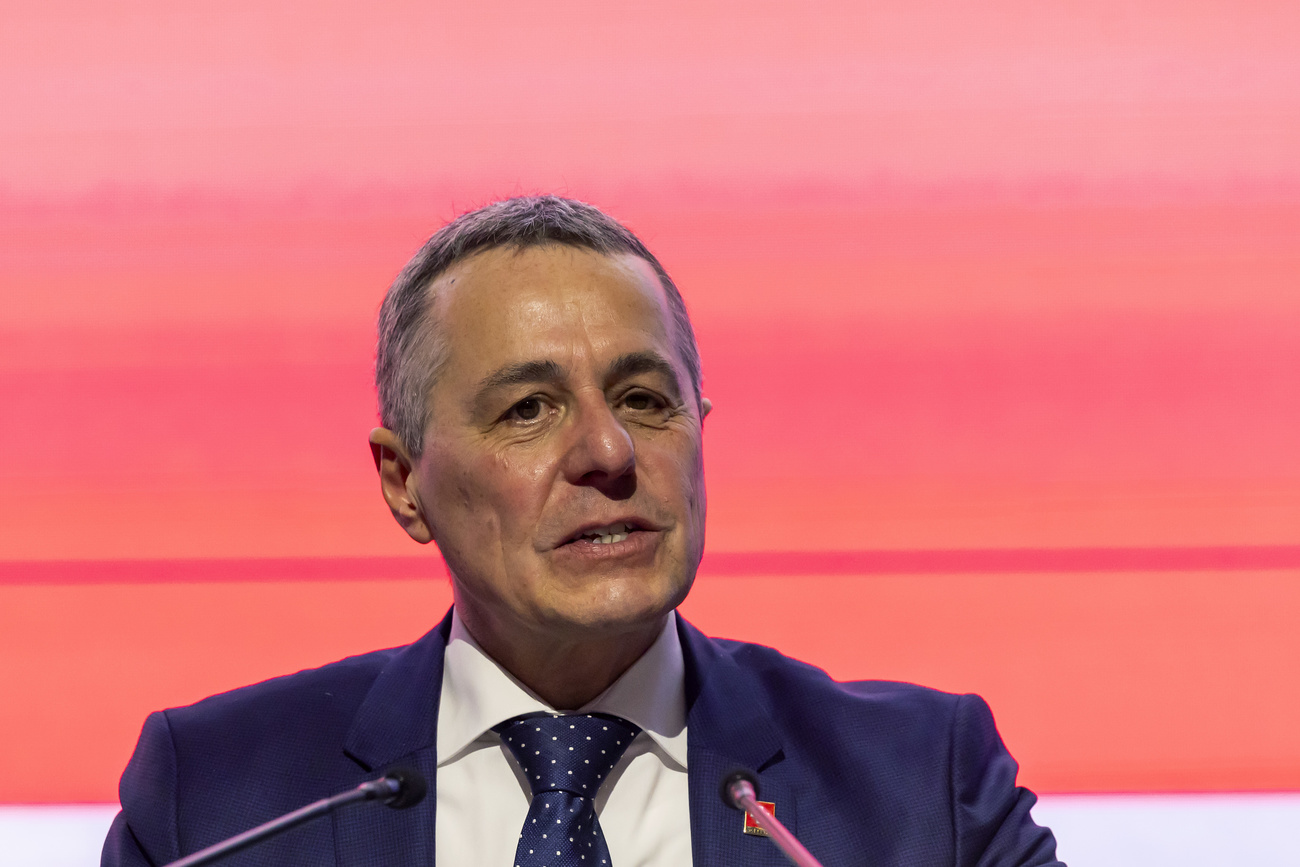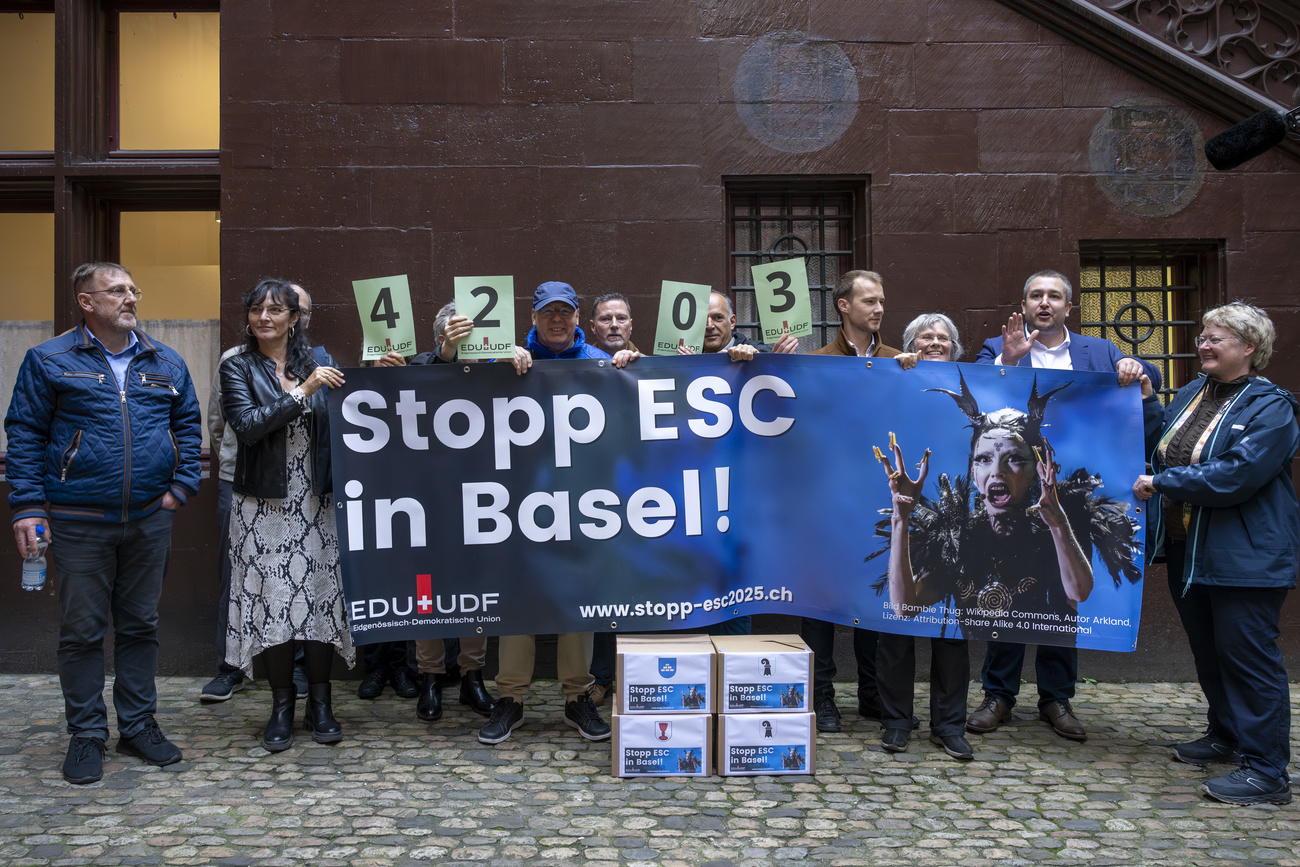

Switzerland Today
Dear Swiss Abroad,
Two weeks ago, Switzerland made headlines for repatriating two Afghan nationals who had been convicted in the country – the first such repatriation since the Taliban's return to power. Today, we turn to a similar case involving three Ukrainians, who are now being sent back home by Swiss authorities for the first time since the start of the Russian invasion.
Meanwhile, in a separate matter, Swiss authorities have rejected Italy’s request to extradite a man suspected of committing a massacre in 1974.
Today’s updates also cover Foreign Minister Ignazio Cassis's participation in the Ukraine Peace Conference in Montreal, and the controversy surrounding a referendum that may impact Switzerland’s hosting of the Eurovision Song Contest in Basel next year.
Happy reading!

Switzerland deports three convicted Ukrainians despite war back home
Switzerland has deported three Ukrainian men convicted of serious crimes in canton Zurich, marking the first time such repatriations have occurred since Russia’s invasion in February 2022.
This development was confirmed to the newspaper Neue Zürcher Zeitung (NZZ) by the State Secretariat for Migration (SEM). What awaits these men on their return remains uncertain, as Ukraine is currently calling up every able-bodied person to aid in the war effort and has recently increased pressure on Ukrainians living abroad.
The NZZ questions whether it is justifiable for Switzerland to deport individuals – even criminals – to a country at war. The SEM clarified that repatriations do not require consideration of the general situation in the home country for those convicted and expelled from Switzerland. Only the risk of persecution or human rights violations must be assessed, and potential military conscription is not considered an obstacle, the SEM said.
- Full article in NZZExternal link (in German)
- “Go to war or stay”: Ukrainians facing new
dilemmas in Switzerland – testimonies
by Elena Servettaz

Switzerland denies Italy’s extradition request over 1974 massacre in Brescia.
Swiss authorities have refused to extradite Marco Toffaloni, a Swiss national accused of involvement in the Piazza della Loggia massacre in Brescia, Italy, on May 28, 1974.
Toffaloni is alleged to have planted the bomb that killed nine people and injured over 100 at a trade union rally. While Italy still seeks to prosecute him for the crime, Swiss authorities argue that the massacre charge is now time-barred in Switzerland. Italian authorities, however, contend that Toffaloni, who was 16 at the time, can still be prosecuted.
Toffaloni’s brother, who was also due to appear before the juvenile court in Brescia today, was notably absent, leading to the trial’s postponement until November 24.
- Article by Swiss public radio, RSI: “A mass murderer in LandquartExternal link?”

Foreign minister Cassis commits to peace efforts at Ukraine summit in Montreal
Switzerland remains committed to working for lasting peace in Ukraine, stated foreign minister Ignazio Cassis at a ministerial conference in Montreal, Canada.
The Montreal summit follows the Ukrainian Peace Conference held in June at the Bürgenstock in canton Nidwalden and concludes a series of international summits. This latest session focused on humanitarian and peace issues after previous discussions centred on food security and nuclear safety.
Switzerland’s foreign ministry emphasised adherence to the Geneva Conventions and advocated for the exchange of all prisoners of war between Russia and Ukraine, as well as the return of deported children and political detainees to Ukraine. Bern expressed interest in participating in a second peace conference that could also include Russia.
- More on NauExternal link (in German)
More

Basel’s Eurovision hosting may be in jeopardy due to a referendum
Switzerland’s direct democratic process might jeopardise the Eurovision Song Contest, scheduled for next May in Basel.
The Federal Democratic Union, a conservative-evangelical party, recently announced it had gathered enough signatures to bring the CHF37.5 million ($43.3 million) cantonal funding for Eurovision to a vote.
Swiss public broadcaster SRF explains that if the referendum passes and funding is withdrawn, Eurovision would still be held at Basel’s St. Jakobshalle, but without cantonal support. This would result in a scaled-down event limited to the broadcast itself, with all associated festivals and city-wide events cancelled.
While the referendum is formally about funding, the Federal Democratic Union has voiced moral concerns about the event. Party member Samuel Kullman criticised Eurovision for allowing “satanic celebrations and references” while allegedly prohibiting Christian symbols. In a recent interview with Neue Zürcher Zeitung (NZZ), Federal Democratic Union President Daniel Frischknecht argued that Eurovision undermines the “divine order” and has increasingly become a “propaganda platform for homosexual and non-binary people” over the past 15 years.
- More details on Swiss public television, SRFExternal link (in German)

Picture of the day
Regardless of what happens with the Eurovision Song Contest, what is certain is that the city of Basel loves it’s festivals.
Even the arrival of autumn is an opportunity to party.
For more than 550 years, young and old alike have been attending the Herbstmesse (Autumn Fair) held throughout the city centre.
Some seek an adrenalin rush on the rides, while others indulge in culinary delights such as Beggeschmutz, Doppeldecker or Chäsbängel (even I don’t know exactly what these are, but my Basel colleague assures me that they are delicious).
Translated from Italian using DeepL/amva

In compliance with the JTI standards
More: SWI swissinfo.ch certified by the Journalism Trust Initiative































